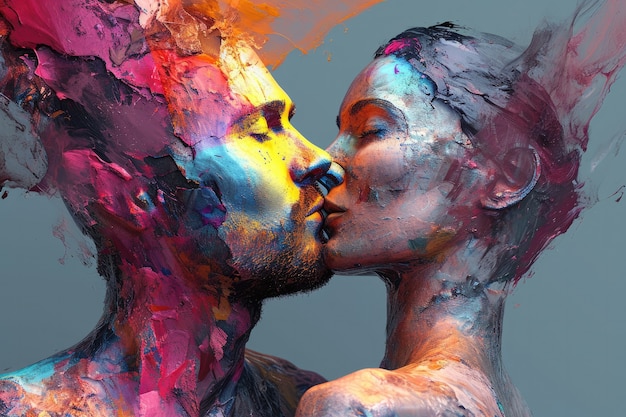
Sign up for our daily and weekly newsletters to get the latest updates and exclusive insights on leading AI developments.
On May 13th, OpenAI unveiled the latest version of its ChatGPT, called GPT-4o, which quickly became a hot topic. According to OpenAI, this new model is much faster and more efficient than previous versions and can handle audio, vision, and text in real time. However, what really surprised users was GPT-4o’s remarkably human-like abilities. It can interpret emotions, chat, sing, and even laugh. It can help with interview prep, sing lullabies, or play rock-paper-scissors. AI isn’t just an assistant anymore; it’s becoming a companion.
Earlier this year, Microsoft aired a Super Bowl commercial featuring their AI assistant, Copilot, which they introduced last year. The one-minute ad showed how AI helps people achieve their dreams, whether in art, coding, or other fields. Importantly, AI assists in realizing dreams; it doesn’t do it alone. In transportation, healthcare, banking, and robotics, AI is revolutionizing every sector of our lives.
Right now, new tools are being developed that could significantly change our everyday lives. There are discussions about AI potentially replacing many jobs soon. According to a McKinsey report, generative AI could automate up to 70% of business activities by 2030. OpenAI estimates that 80% of the U.S. workforce could see at least 10% of their job impacted by large language models. On a positive note, AI may enhance human collaboration, reshaping work environments and creating opportunities for those with limited access to education.
AI should be viewed as a partner that can perceive, understand, and analyze information faster and more efficiently than humans. However, skills like leadership, strategic management, and interpersonal communication will remain uniquely human strengths.
While GPT-4o can handle many tasks, there are still areas that remain the domain of humans:
Creativity
AI can assist in the creative process, but true creativity involves intuition, emotion, empathy, and making connections between unrelated concepts. Personal experiences and cultural backgrounds heavily influence creativity, making human creative work unique.
Leadership and Strategic Management
Human leaders consider factors like personal relationships and company culture when making decisions. Intuition, general awareness, and understanding of broader contexts are vital. Success stories like Elon Musk and Steve Jobs show that leadership relies on more than just data analysis.
Interpersonal Communication
Empathy is crucial in team management, something AI can’t fully replicate, though it’s improving. Human managers listen and understand their team members’ needs and motivations, ensuring everyone is on the same page.
Ethical Decision-Making
Many business decisions require ethical considerations. Unlike AI, humans can navigate moral dilemmas, a responsibility that will remain until AI can reliably emulate human empathy.
To thrive with AI, here are five essential skills to develop:
Critical Thinking
Adapt quickly to new trends, tools, and markets, and stay resilient. This can be developed by embracing new experiences, practicing problem-solving in different scenarios, and maintaining a positive attitude.
Emotional Intelligence
Understanding your own emotions, showing empathy, and connecting with others. Develop this by practicing active listening and adopting personalized approaches to each project.
Creative Problem-Solving
Find novel solutions to unexpected challenges. Develop this skill by staying open to new ideas, participating in brainstorming sessions, and using mind maps to generate ideas.
Continuous Learning
Commit to learning new skills and staying ahead of trends. Take advantage of educational platforms, seminars, and even AI to create personalized learning plans.
AI is an ally, not a threat. It offers opportunities that were previously unimaginable, assisting us in many tasks. Prioritize developing skills where AI falls short, focusing on uniquely human traits and soft skills to stay competitive.
Marina Minnikova has worked as a program manager with companies like IDEO, Sensorium Galaxy, Sony Pictures Entertainment, and United in Gaming.
For more insights and updates on data and AI, join the VentureBeat community at DataDecisionMakers.